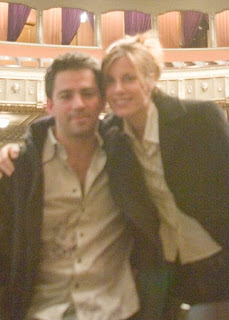Andres
Mejia is an Organizational Solutions Expert at McKinsey & Co, and
at present is living in Miami, Florida. He is a graduate of the
Universidad de los Bogota in Bogota, Colombia, where he earned a
Bachelor of Science degree in Industrial Engineering in 1997.
Industrial
Engineering is a specialized branch of engineering that involves
determining how to make or do things better and more efficiently. At the
professional level, industrial engineers focus on reducing production
costs for businesses, improving workforce efficiency, and improving the
quality of a company’s products and services. They are also concerned
with health and safety in the workplace, protecting the environment, and
ensuring that their clients are in compliance with applicable industry
regulations.
It
is a discipline that has its origins in the earliest days of the
Industrial Revolution in the late 18th Century, and basically grew up
alongside of it. Originally, it was focused almost completely by
increasing the profitability of manufacturing. Today a central focus of
industrial engineering is a concept called Total Quality Management,
which emphasizes the quality of products and processes of a company in
every phase of its operations.
Some
of the career highlights of Andres Mejia McKinsey & Co include
managing a team that developed and implemented a new organizational
structure during the merger of two leading home improvement chains in
Peru, and leading a team of consultants and client team members for the
largest retail bank in Colombia, as it defined and secured cost savings
in excess of U.S. $25 million.
Sources:


